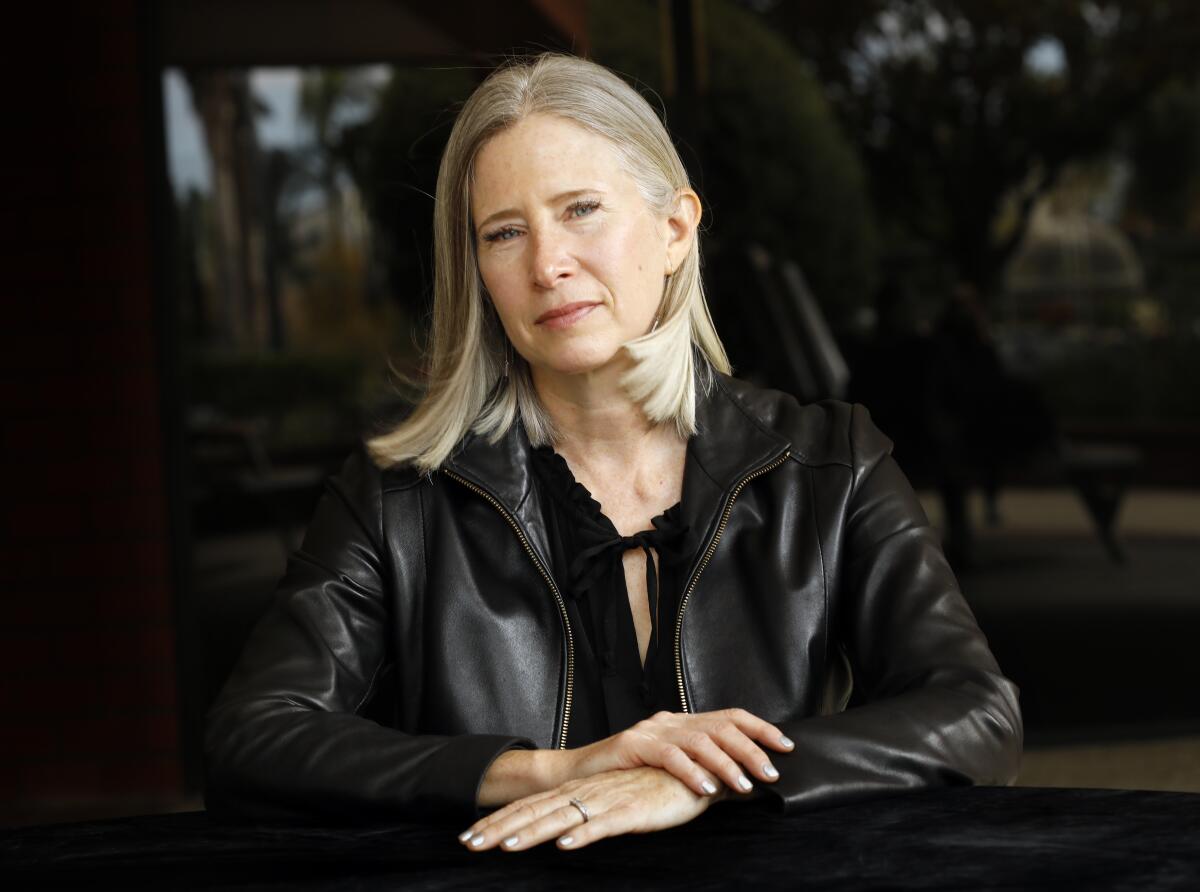How ‘King Richard’ editor Pamela Martin saved a crucial scene

- Share via
With two sports-centric films to her name, the tennis saga “Battle of the Sexes” and boxing drama “The Fighter,” Oscar-nominated editor Pamela Martin was seasoned in delivering credible competitive athleticism before embarking on “King Richard.”
Starring Will Smith in the title role, the inspirational based-on-real-events tale from director Reinaldo Marcus Green chronicles the sacrifices and unwavering determination of Richard Williams to propel his daughters Venus and Serena to tennis superstardom.
Martin started her work on “King Richard” before production even began, since Green decided to shoot previsualization material with tennis doubles on a court to figure out what camera angles would work best, especially the low dolly shots required to capture the fast-paced play depicted. By cutting sequences together from that footage as it came in, Martin helped the director and the cinematographer’s process before the actors arrived on set.
The actors made it a point to give each parent credit for helping to shape tennis stars Venus and Serena Williams.
Key lessons Martin learned on her previous experiences with sports narratives deal with how the detailed choreography involved in sequences on the court or the ring complicates cutting them. In an effort to capture the plays with precision, particularly with tennis, filmmakers end up with a large number of unusable takes. To prevent this unnecessary exertion, Martin told Green about an alternative that helps her in the cutting room.
“It’s very important to shoot free play,” she said. “So I told Rei at the very beginning, ‘Make sure you get the tennis doubles and the girls just hitting the ball back and forth. It doesn’t matter what the choreography is, because there are going to be little gems in there that are going to be amazing to use in the film.’”
That Martin is herself a tennis enthusiast was a bonus in terms of her understanding of the scoring and of its physicality. She and her husband regularly play recreationally, watch professional matches on television and have even attended the U.S. Open.
For “King Richard,” Martin’s ability during principal photography to assemble scenes as they were being filmed was crucial.
“The reason being that your sets are still dressed and your actors are there, and if they miss anything, there’s still an opportunity for me to clue them in and let them go back and get what they need, as well as pointing out if there are any story issues or performance issues,” Martin said. “You just don’t want to get too far down that road without seeing your material come together and being able to make corrections.”
In one such instance, Martin knew a pivotal conversation between Richard and Serena Williams (Demi Singleton), where he tells the burgeoning athlete, “You’re going to be the greatest of all time,” wasn’t working. Originally, that exchange was written to take place in the young girl’s room as the family packed up to drive to Venus’ first big tournament in Oakland. Instead, given that the production was running late on that day, it was quickly shot in the home’s stairwell. But when Martin got the footage, she realized it didn’t work on multiple levels.
“It was rushed, the camera angles weren’t great because they were in this very tight stairwell space and the performances were a bit off. It was the only time I said, ‘This scene just doesn’t work.’”
After talking to Green and the producers, they chose to reshoot the father-daughter heart-to-heart at the Oakland venue still upcoming on the production schedule, which placed the moment in the third act, giving it greater emotional significance.
Another challenge stemmed from the fact that Venus and Serena’s early matches didn’t include the often-ubiquitous voices of sportscasters that came along later in their careers.
“Commentators tell you how to feel, because you’re experiencing it through their eyes. Instead, we had to experience the tennis matches through the Williams family,” Martin noted. “These were not televised events; therefore, there were no commentators, and you really can’t make that stuff up and have it be authentic.”
To immerse the audience into these high-wire clashes without a narrator, Martin cut the matches like action scenes, conscious of showing distinct points of view, whether it was Richard Williams, whose nerves prevented him watching closely during the final match, or reaction shots from other members of the clan or the crowd of spectators.
Though honored to be nominated for an Academy Award a second time, following her nod for “The Fighter,” Martin believes that the Academy’s decision to prerecord and edit the awards pertinent to below-the-line artisans and short films is an ill-conceived effort to expedite the ceremony and increase viewership, calling it “disrespectful to all of the crafts that are not going to be presented live.”
“If they really believed that it was going to be the same experience for everybody, then they would’ve pulled the categories from a hat, but they didn’t do that,” said Martin. “Therefore, they’re making all of those categories feel a little bit like second-class citizens.”
More to Read
Sign up for The Envelope
Get exclusive awards season news, in-depth interviews and columnist Glenn Whipp’s must-read analysis straight to your inbox.
You may occasionally receive promotional content from the Los Angeles Times.







